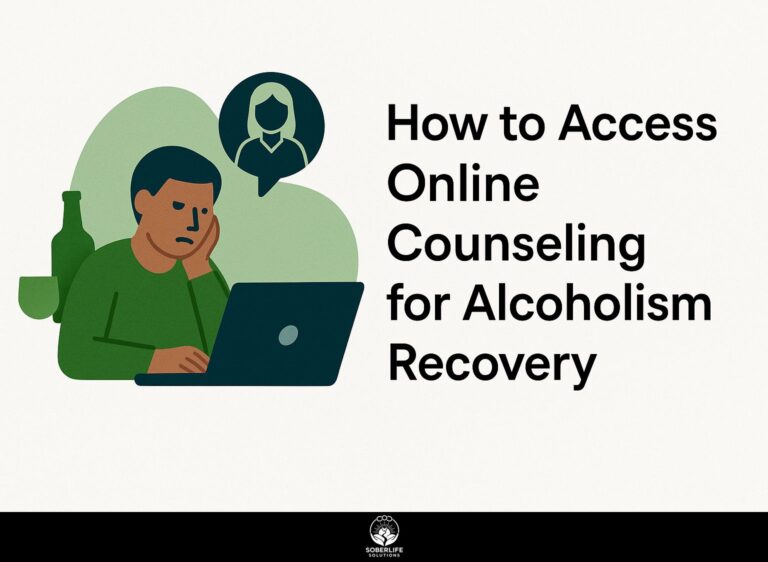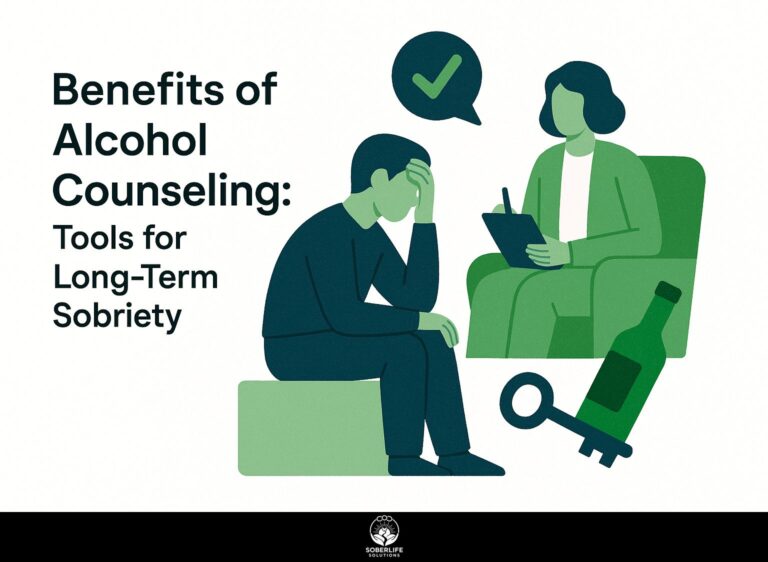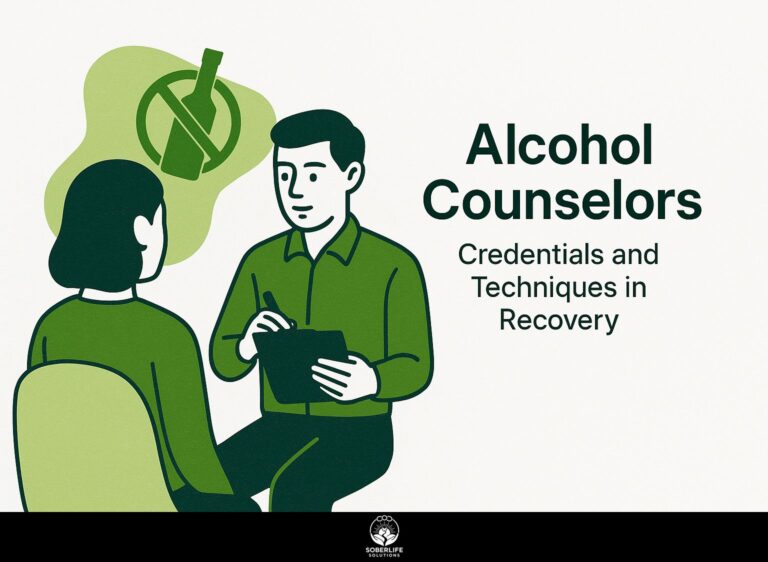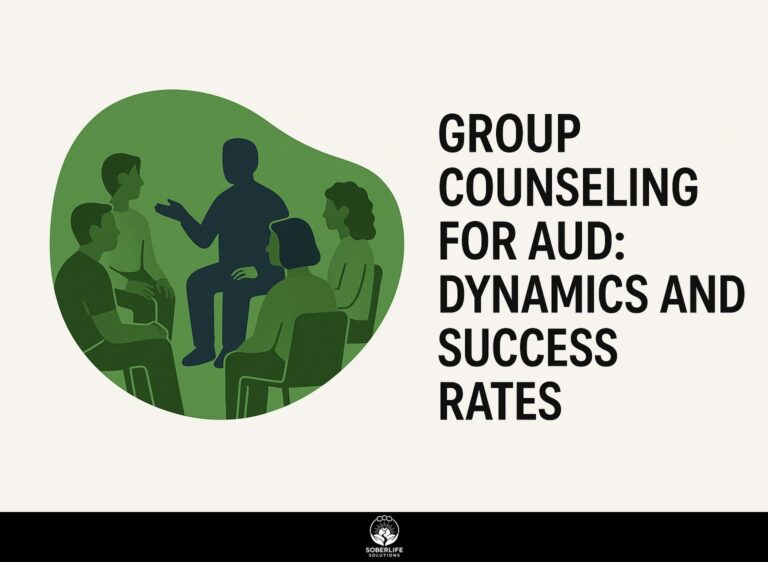Motivational Enhancement Therapy: Methods, Outcomes, and Impact on Veterans
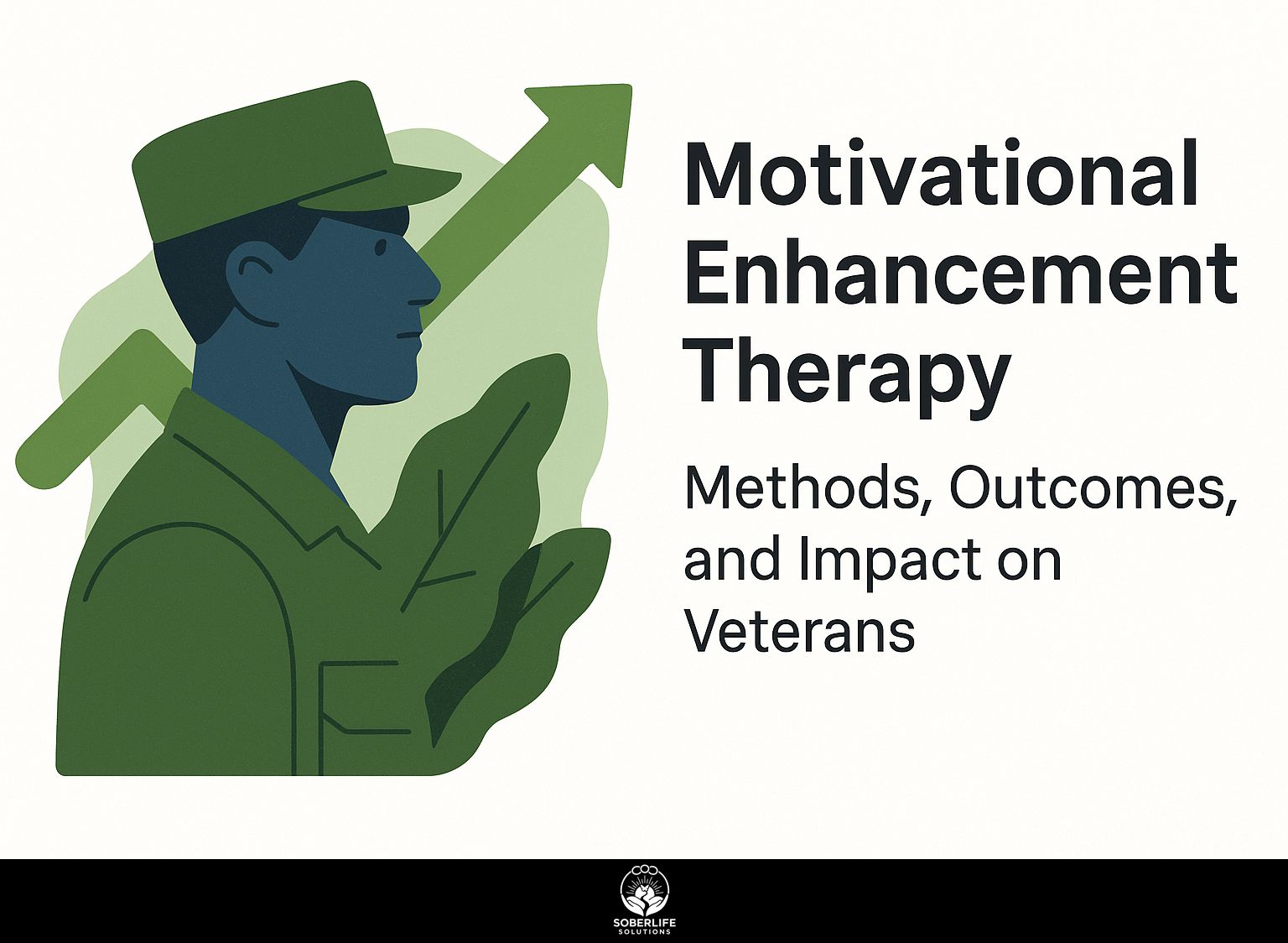
Motivational Enhancement Therapy (MET) is very important in treating substance use disorders, especially in the Veterans Health Administration. This method, based on evidence, uses motivational interviewing to encourage positive change for veterans dealing with specific difficulties. In this article, we will look at how MET works, what it achieves, and its important effect on veterans, showing how it changes lives in the Veterans Affairs system. Be part of our discussion on this key therapy method.
Key Takeaways:
Definition and Purpose
MET is a treatment method that increases the desire to change by using methods based on motivational interviewing.
This approach primarily targets individuals struggling with addiction or behavioral change, setting it apart from traditional methods that often impose external motivation.
Unlike traditional treatments that might focus on giving direct solutions, MET builds a teamwork-based relationship, helping clients express their personal reasons for change. For example, a regular program may focus on complete abstinence, while MET might consider moderation as a practical starting point.
Therapists use methods such as listening attentively and asking questions that cannot be answered with a simple yes or no. These methods help clients set their objectives and recognize their ability to change, making the process more supportive.
Historical Context
Originating from the Project MATCH study in the 1990s, MET has evolved as an evidence-based practice widely adopted by the Veterans Health Administration.
This methodology emphasizes the significance of a person’s motivation to change, aligning treatment with individual readiness.
Research, such as that from the VA, shows MET is effective in lowering substance use problems in veterans. For instance, a 2018 randomized controlled trial found that veterans receiving MET reported a 30% decrease in substance use over six months compared to standard care.
These findings highlight how MET helps fit interventions to individuals, leading to better participation and continued involvement in treatment programs within VA settings. For expanded context, an in-depth analysis by ScienceDirect explores how Project MATCH’s methodologies have been adapted across various client groups, emphasizing its broad applicability. Additionally, incorporating [peer support groups](https://soberlifesolutions.com/peer-support-groups-benefits/) has shown to further enhance recovery outcomes by offering community and shared experiences.
Main Techniques in Motivational Therapy
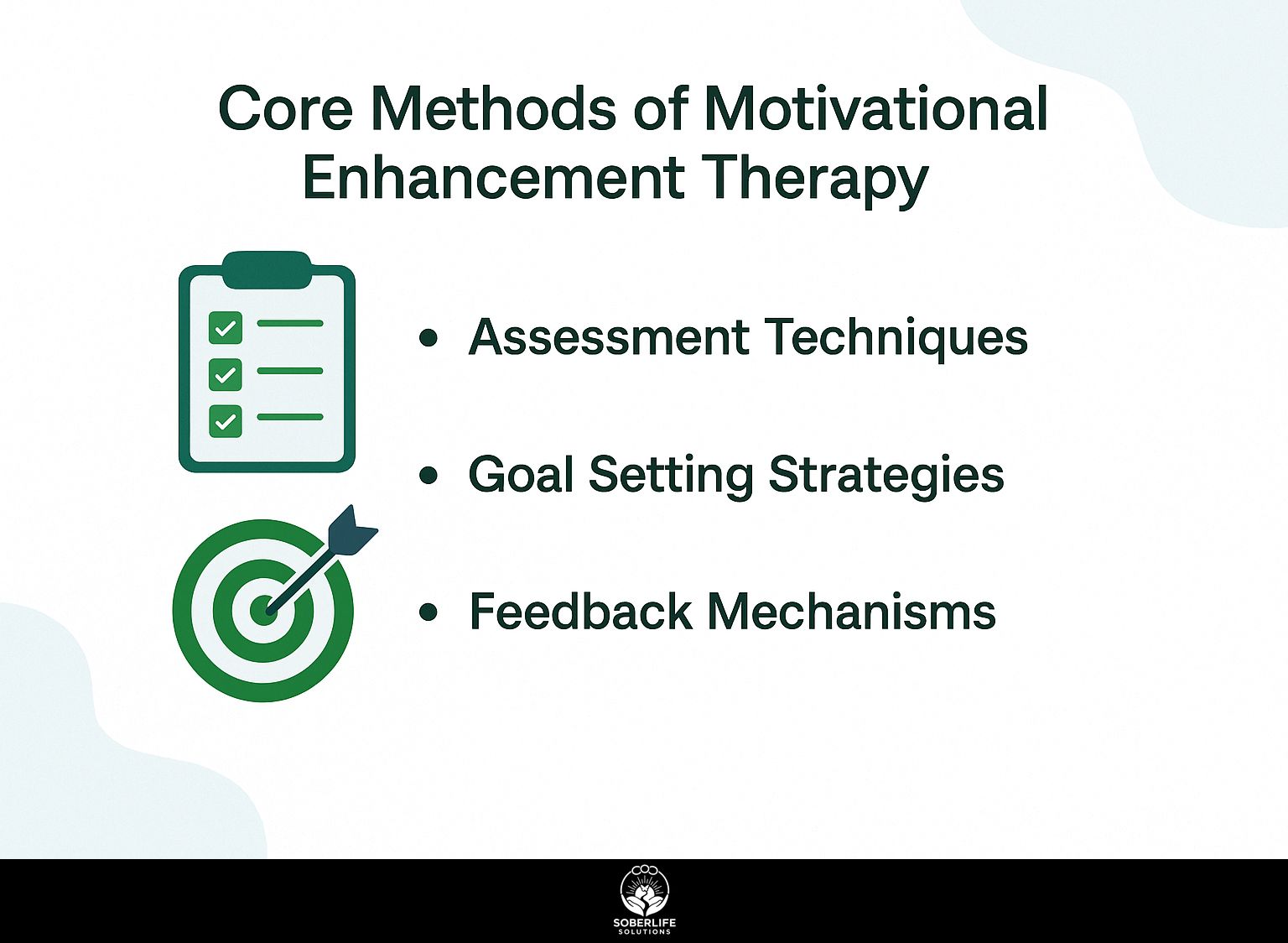
MET uses several main methods to engage clients and support lasting behavior change during therapy. For those looking to reinforce their recovery journey, exploring sober support systems can provide additional strategies and community engagement to sustain change.
Assessment Techniques
Assessment techniques in MET often include self-reporting tools and competency-based evaluations to gauge clients’ readiness for change.
A useful tool is the Readiness to Change Questionnaire (RCQ), which shows how ready people are to make changes. This tool presents scenarios to participants, allowing them to rate their level of readiness, which informs clinicians about the appropriate interventions. According to research published on ResearchGate, the psychometrics of the RCQ further validate its effectiveness in various cultural contexts.
For instance, if a client scores high on the contemplation stage, clinicians might focus on enhancing motivation through motivational interviewing. Assessing skills based on competency can help in treatment planning by focusing on the client’s individual needs and goals.
Goal Setting Strategies
Setting effective goals in MET means working together to create realistic, client-focused targets to tackle substance use issues.
Using the SMART criteria (Specific, Measurable, Achievable, Relevant, Time-bound) can help Veterans manage their recovery process. For example, you might set a goal to attend a support group weekly and track your progress by noting your attendance over three months.
An achievable target could involve completing a vocational training program relevant to their career aspirations. Setting practical timeframes, like finding a job within six months after treatment, helps Veterans stay on track and encouraged as they work toward getting better.
Feedback Mechanisms
Feedback systems in MET are important because they give clients timely and helpful information about their progress, helping them build confidence in their abilities.
Regular progress reviews are integral to the MET approach. For instance, after each session, both the client and facilitator discuss specific outcomes, highlighting achievements and areas for improvement.
This could involve utilizing motivational interviewing techniques such as reflective listening to help clients recognize their strengths. A main example is a client who improved in setting goals after receiving specific feedback on their personal challenges, which greatly increased their self-confidence.
By regularly using feedback, clients can change plans and keep moving forward in their personal growth paths.
Results of Motivational Therapy
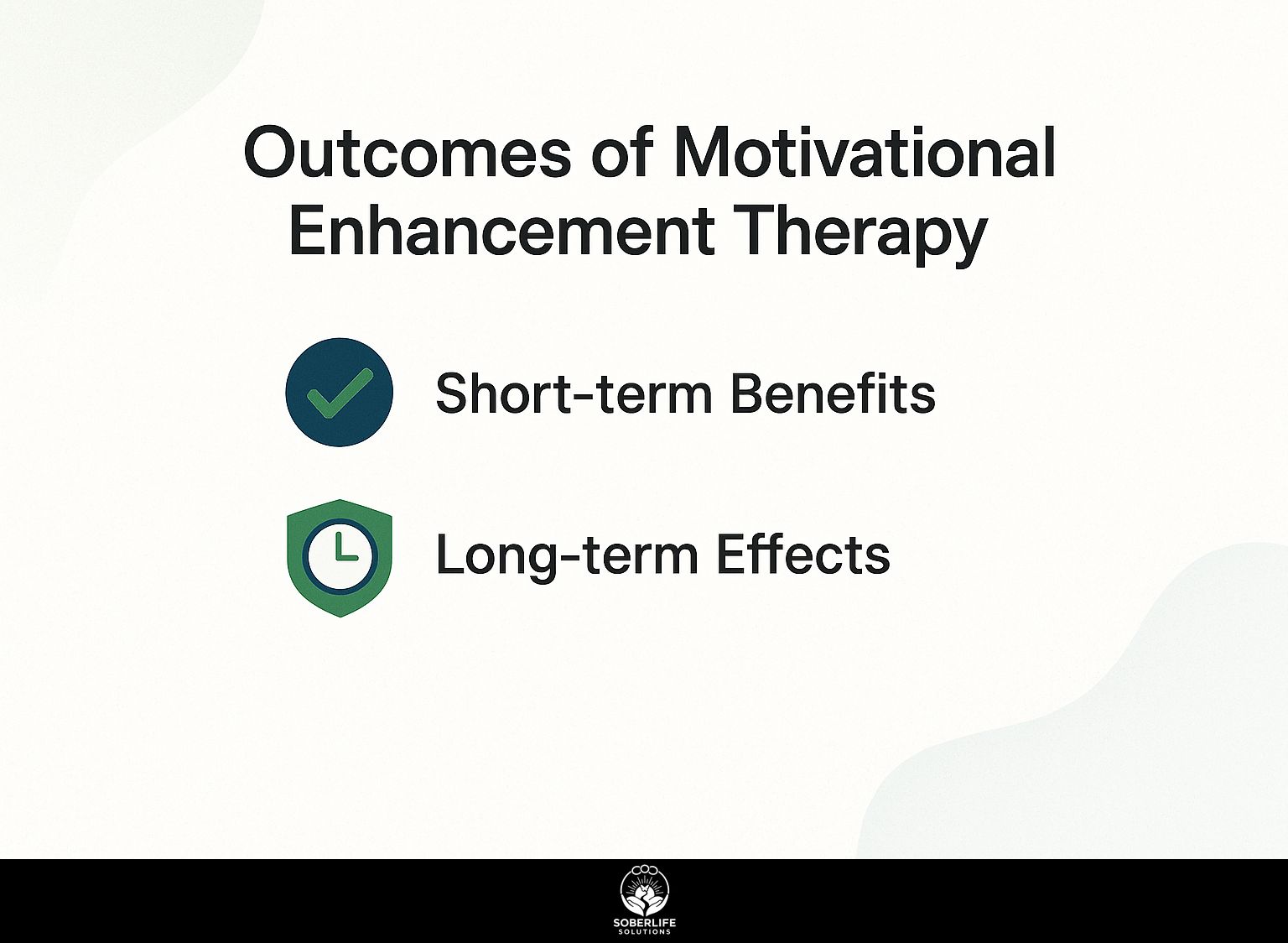
The results of MET go beyond the first involvement, showing important short-term advantages that can help with lasting recovery from substance use disorders. Curious about the implementation and effectiveness of brief interventions for AUD? Our research provides valuable insights into how these methods contribute to recovery.
Short-term Benefits
Short-term benefits of MET often include increased motivation and readiness to change, as evidenced by self-reported skills improvement among participants.
People who take part in Motivational Enhancement Therapy (MET) often say they feel more engaged and have a clearer grasp of their personal goals. For example, a study indicated that individuals completing MET saw a 30% increase in self-efficacy regarding their ability to manage habits.
Implementing simple techniques, such as goal setting and reflective listening during sessions, helps reinforce this motivation. Using the SMART criteria helps make setting goals easier. Your goals should be Clear, Measurable, Achievable, Important, and have a Deadline, so you can progress faster.
Long-term Effects
Long-term effects of MET can lead to sustained recovery rates and improved mental health outcomes among veterans dealing with substance use disorders.
Research from the Veterans Health Administration indicates that veterans who participate in Motivational Enhancement Therapy (MET) have a higher chance of remaining sober over time. For instance, a longitudinal study highlighted a 45% recovery rate at the two-year mark compared to 30% in traditional therapies.
MET promotes self-efficacy through structured feedback and goal setting, further enhancing long-term success. These findings highlight the importance of including MET in rehabilitation programs. It deals with immediate problems and encourages long-term changes in behavior and mindset.
Impact on Veterans
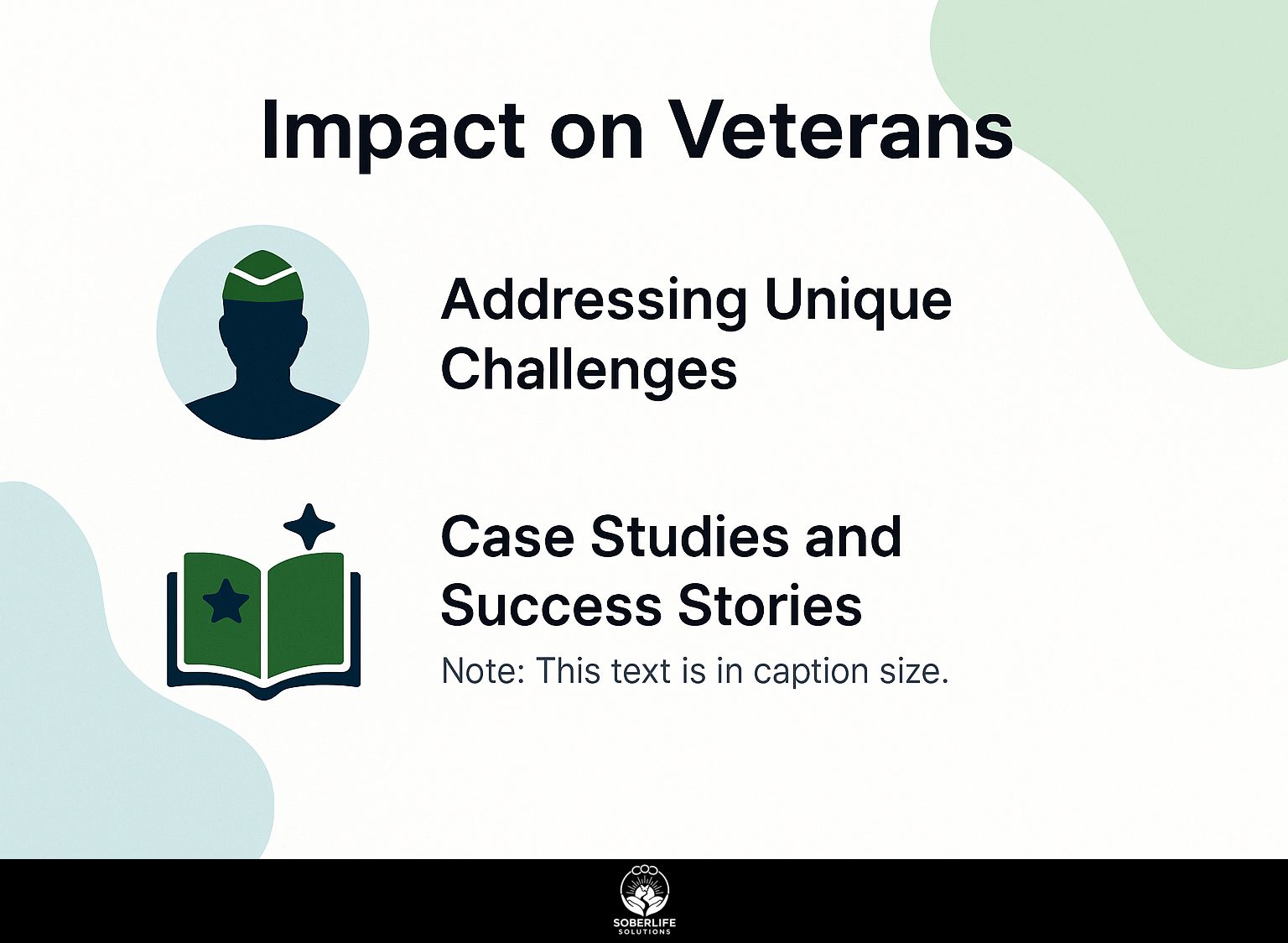
Motivational Enhancement Therapy focuses on the unique challenges veterans encounter, particularly those connected to mental health issues and drug or alcohol problems.
Addressing Unique Challenges
MET works well for dealing with the specific issues faced by patients with dual diagnoses, using specific methods for quitting tobacco and substance use.
Using motivational interviewing methods along with cognitive-behavioral strategies can greatly improve participation. Therapists can facilitate discussions that help patients identify their own reasons for quitting tobacco, while also addressing substance use triggers.
Tools like the Motivational Interviewing Treatment Integrity (MITI) can aid clinicians in refining their technique to promote better outcomes. Giving rewards, like gift cards for meeting treatment targets, can motivate patients in their recovery, making progress clearer and more attainable.
Case Studies and Success Stories
Various case studies show how MET has succeeded within Veterans Affairs, demonstrating clear advancements in client results and involvement.
One notable case at the VA San Diego Healthcare System involved a group of veterans undergoing trauma-focused MET over eight weeks. Participants reported an 80% reduction in PTSD symptoms, as measured by standardized assessment tools.
The VA Washington DC Medical Center implemented MET alongside traditional therapy, resulting in a 30% increase in patient participation. Feedback highlighted improved communication skills and stronger peer relationships.
These examples show MET’s success in improving therapy involvement and measurable mental health results for veterans.
Comparative Analysis with Other Therapies
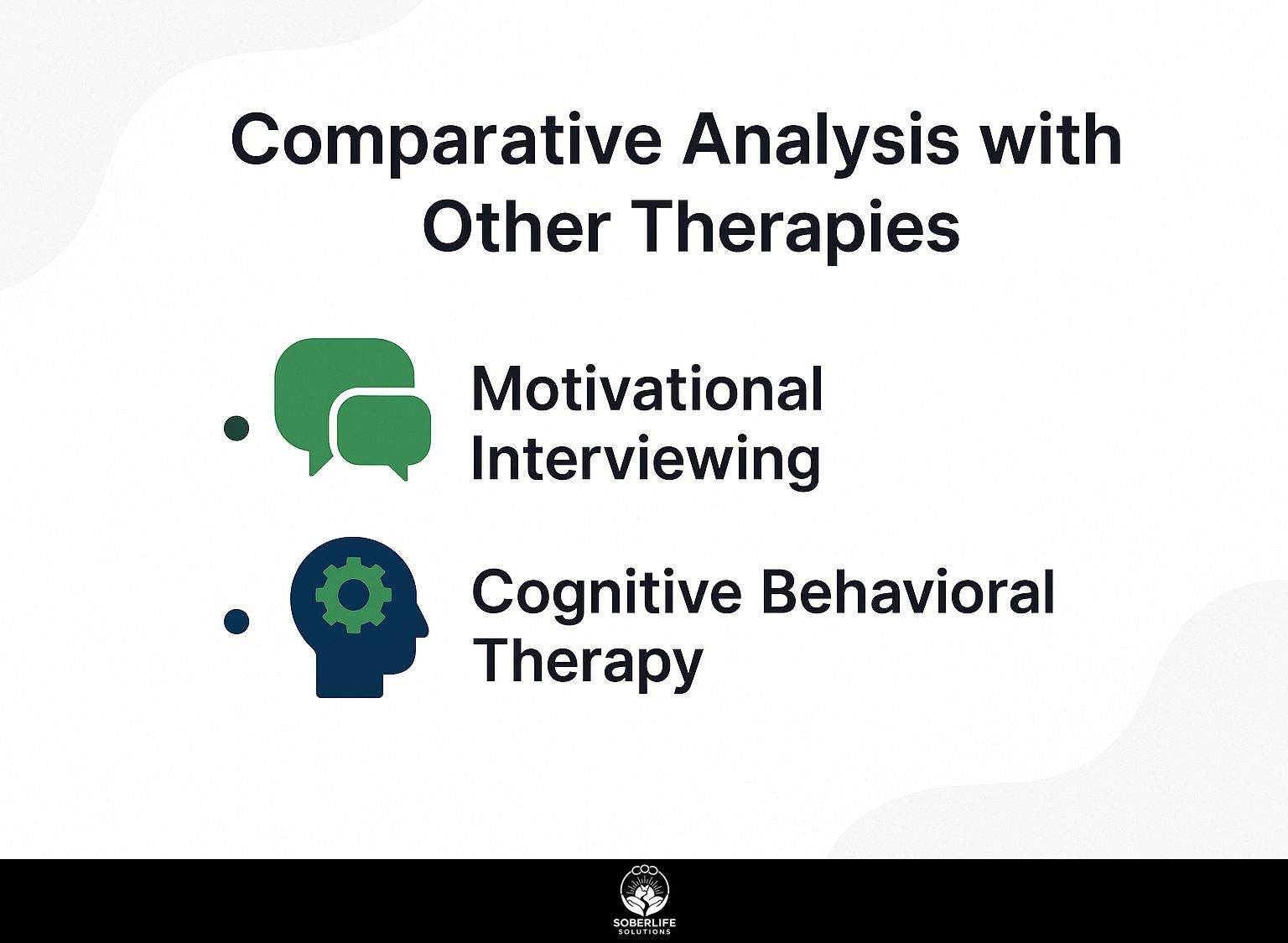
A comparison between MET and other treatments, such as motivational interviewing and Cognitive Behavioral Therapy, shows unique benefits in specific situations.
Motivational Interviewing
MET is based on motivational interviewing, but it uses a specific method to increase client motivation and resolve doubt.
MET improves motivational interviewing (MI) by offering a clearer structure.
MI encourages honest discussions about values and reasons for change, while MET uses clear methods like exercises to evaluate the advantages and disadvantages.
In practice, a therapist may use MI to help a client articulate their desire to quit smoking, followed by MET techniques such as evaluating the pros and cons of smoking versus quitting.
This dual approach effectively addresses clients’ hesitation, enhancing their overall commitment to change.
Cognitive Behavioral Therapy
Cognitive Behavioral Therapy (CBT) complements MET by addressing cognitive patterns and behaviors associated with substance use disorders, enhancing overall treatment effectiveness.
By using Motivational Enhancement Therapy (MET) alongside Cognitive Behavioral Therapy (CBT), therapists can address both motivation and behavior in addiction recovery. Research shows that combining these approaches can lead to a 20% increase in treatment adherence.
For example, therapists might employ MET techniques to build rapport and encourage self-motivation, while simultaneously using CBT strategies to challenge negative thought patterns. According to a study by ResearchGate, this combination has been particularly effective in trials among adolescents with comorbid conditions.
This two-step method can help people stick with change and develop the skills needed to handle triggers, leading to more enduring recovery outcomes.
Upcoming Areas for Study and Possible Investigations
MET’s development depends on increasing its research and applying methods in different clinical environments, especially with groups that are often overlooked.
To make Motivational Enhancement Therapy (MET) work better, researchers should adjust methods to suit various cultural backgrounds. Research with minority groups can show what influences their commitment to following treatments.
For instance, trials assessing MET’s effectiveness in community health clinics may reveal unique barriers and facilitators. Developing training programs for clinicians that emphasize culturally responsive communication will increase the adoption of MET practices.
These efforts could be supported by collaborating with community groups to improve outreach and education, making motivational interviewing methods more widely known.
Frequently Asked Questions
What is Motivational Therapy?
Motivational Enhancement Therapy (MET) is a kind of behavioral therapy aimed at boosting a person’s desire to change their behavior. It is often used to treat substance abuse, but can also be applied to other behaviors such as unhealthy eating habits or lack of physical activity.
What techniques are used in Motivational Enhancement Therapy?
MET uses a mix of methods, such as motivational interviewing, setting goals, and cognitive-behavioral approaches. The therapist works together with the person to figure out their aims and values, and to examine their mixed feelings about changing their behavior. The therapist then helps the individual develop strategies to overcome their barriers to change.
What results come from Motivational Enhancement Therapy?
Studies have shown that MET can be an effective treatment for a variety of behavioral issues, including substance abuse, depression, and anxiety. It has been found to be particularly beneficial for individuals who may be resistant to traditional forms of therapy.
How does Motivational Enhancement Therapy affect veterans?
MET has been shown to be effective in helping veterans with a range of issues, including substance abuse, PTSD, and depression. Studies show it helps people who might be reluctant to try regular mental health treatment because it focuses on personal independence and self-drive.
Is Motivational Enhancement Therapy right for every veteran?
MET may not be appropriate for all veterans, as each individual’s needs and preferences must be taken into consideration. It is important to consult with a trained therapist to determine if MET is the right approach for a particular veteran.
What are the possible disadvantages of Motivational Enhancement Therapy?
As with any form of therapy, there may be challenges or setbacks along the way. MET requires a commitment to change and may involve confronting difficult emotions and behaviors. However, the advantages of higher motivation and better results might be more important than any possible challenges.

